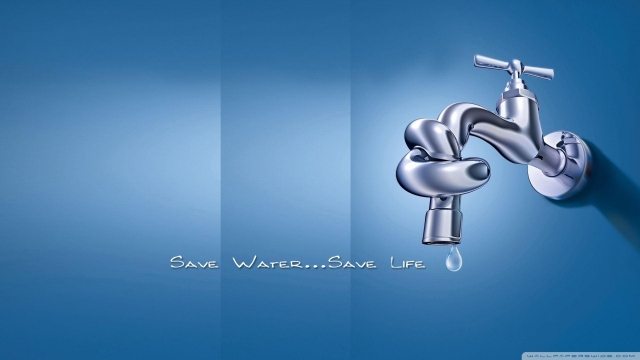The Art of Plumbing: Mastering the Craft of Fixing Leaks and Clogs

Plumbing, an essential part of our everyday lives, often goes unnoticed until something goes wrong. Yet, behind the walls and beneath the floors, there lies a craft that requires skill, precision, and an eye for detail. It is an art form, an intricate dance of pipes, valves, and fixtures that keeps our homes and businesses running smoothly.
For those who have delved into the world of plumbing, it is more than just fixing leaks and unclogging drains. It is a mastery of problem-solving, a blend of science and practicality. Plumbers, the unsung heroes of our infrastructure, possess a unique set of skills that enable them to navigate the labyrinth of pipes and find solutions that others may overlook.
Whether it’s a burst pipe in the dead of winter or a stubborn clog that refuses to budge, the art of plumbing requires patience and perseverance. It involves understanding the flow of water, its pressure, and how it interacts with the pipes and fittings. It is a delicate balance between adjusting valves and making precise connections, all while ensuring the integrity of the system.
Furthermore, the mastery of plumbing extends beyond the technical aspects. It is about communication and building trust with clients, understanding their concerns and providing sound advice. Plumbers are problem solvers, offering practical solutions and recommendations to maximize efficiency and minimize future issues.
In this article, we will delve deeper into the art of plumbing, exploring its fundamentals and the expertise required to excel in this field. From understanding common plumbing problems to learning essential techniques, we will unlock the secrets behind the craft and provide insights into the mind of a skilled plumber. So, grab your wrench and join us on this journey to master the art of plumbing.
Identifying and fixing common plumbing leaks
When it comes to plumbing, leaks are one of the most common issues homeowners face. Not only can they cause water damage to your property, but they can also lead to higher water bills if left unaddressed. In this section, we will discuss how to identify and fix some of the most common plumbing leaks.
-
Faucet Leaks:
Leaky faucets are irritating and wasteful. To identify a faucet leak, listen for any dripping sounds or check for water pooling around the base of the faucet. Usually, a worn-out or faulty O-ring or washer is the culprit. In most cases, you can fix this by replacing the worn-out part with a new one. Remember to turn off the water supply before disassembling the faucet. -
Toilet Leaks:
Toilets can also be a source of leaks, often going unnoticed until they cause a significant increase in your water bill. To check for toilet leaks, place a few drops of food coloring into the tank and wait for about 15 minutes. If the color appears in the toilet bowl, you have a leak. In many cases, a faulty flapper valve or a worn-out flush valve can cause toilet leaks. Replacing these components will often solve the issue. -
Pipe Leaks:
Pipe leaks can be more challenging to identify and fix. Look for signs of water stains on walls, ceilings, or floors, as well as any damp or musty smells in your home. If you notice a sudden decrease in water pressure, it could also indicate a leak. In such cases, it’s best to seek the help of a professional plumber who can locate the source of the leak and repair it effectively.
Remember, identifying and fixing plumbing leaks promptly can save you from costly repairs in the future. Keep an eye out for signs of leaks and address them as soon as possible to prevent further damage.
Clearing and preventing clogs in your plumbing system
Clogs in your plumbing system can be a major inconvenience, causing slow drainage or even complete blockage. However, with the right tools and a little know-how, you can easily clear and prevent clogs in your pipes.
First and foremost, it’s important to avoid flushing or draining anything that could potentially clog your pipes. Items such as grease, oil, coffee grounds, and large food particles should never be disposed of through your plumbing. Instead, dispose of them in the garbage or compost bin to prevent clogs from forming in the first place.
If you do encounter a clog, there are a few methods you can try to clear it. One common technique is using a plunger, which creates a suction force to dislodge the clog. Make sure to cover the drain completely with the plunger and use quick, forceful plunges to push and pull on the clog.
For more stubborn clogs, a plumbing snake or auger can be a useful tool. Insert the snake into the drain and rotate it, allowing the bristles or hooks on the end to grab onto the clog and pull it out. This method is particularly effective for clogs that are deeper in your plumbing system.
By following these tips and being mindful of what goes down your drains, you can keep your plumbing system running smoothly and avoid the hassle of clogs. Prevention is key when it comes to maintaining healthy pipes, so remember to practice good habits and address any clogs promptly to prevent them from worsening.
Ensuring long-term maintenance for a reliable plumbing system
To ensure a reliable plumbing system that stands the test of time, regular maintenance is crucial. Here are some key practices to keep in mind:
-
Inspect and address leaks promptly: One of the easiest ways to maintain your plumbing system is to promptly identify and address any leaks. Regularly inspect your pipes, faucets, and fixtures for any signs of leakage, such as dripping sounds or water stains. If you notice a leak, it is important to fix it as soon as possible to prevent further damage and water wastage.
-
Prevent clogs with mindful usage: Clogs can cause significant disruptions and damage to your plumbing system. To prevent them from occurring, be mindful of what you flush or pour down your drains. Avoid disposing of grease, oil, or large food remnants in the kitchen sink, as they can solidify and clog the pipes. In the bathroom, use drain covers to prevent hair from going down the drain, and avoid flushing non-biodegradable items.
-
Schedule regular professional inspections: While maintaining your plumbing system on your own is important, it is also advisable to schedule regular inspections by professional plumbers. They have the expertise to identify potential issues that may not be evident to an untrained eye. Regular inspections can help catch any underlying problems early on, saving you from costly repairs and ensuring the long-term reliability of your plumbing system.
By implementing these maintenance practices consistently, you can minimize the risk of plumbing emergencies, extend the lifespan of your system, and enjoy uninterrupted access to clean water and efficient drainage. Remember, a little proactive maintenance goes a long way in preserving the functionality of your plumbing system.



